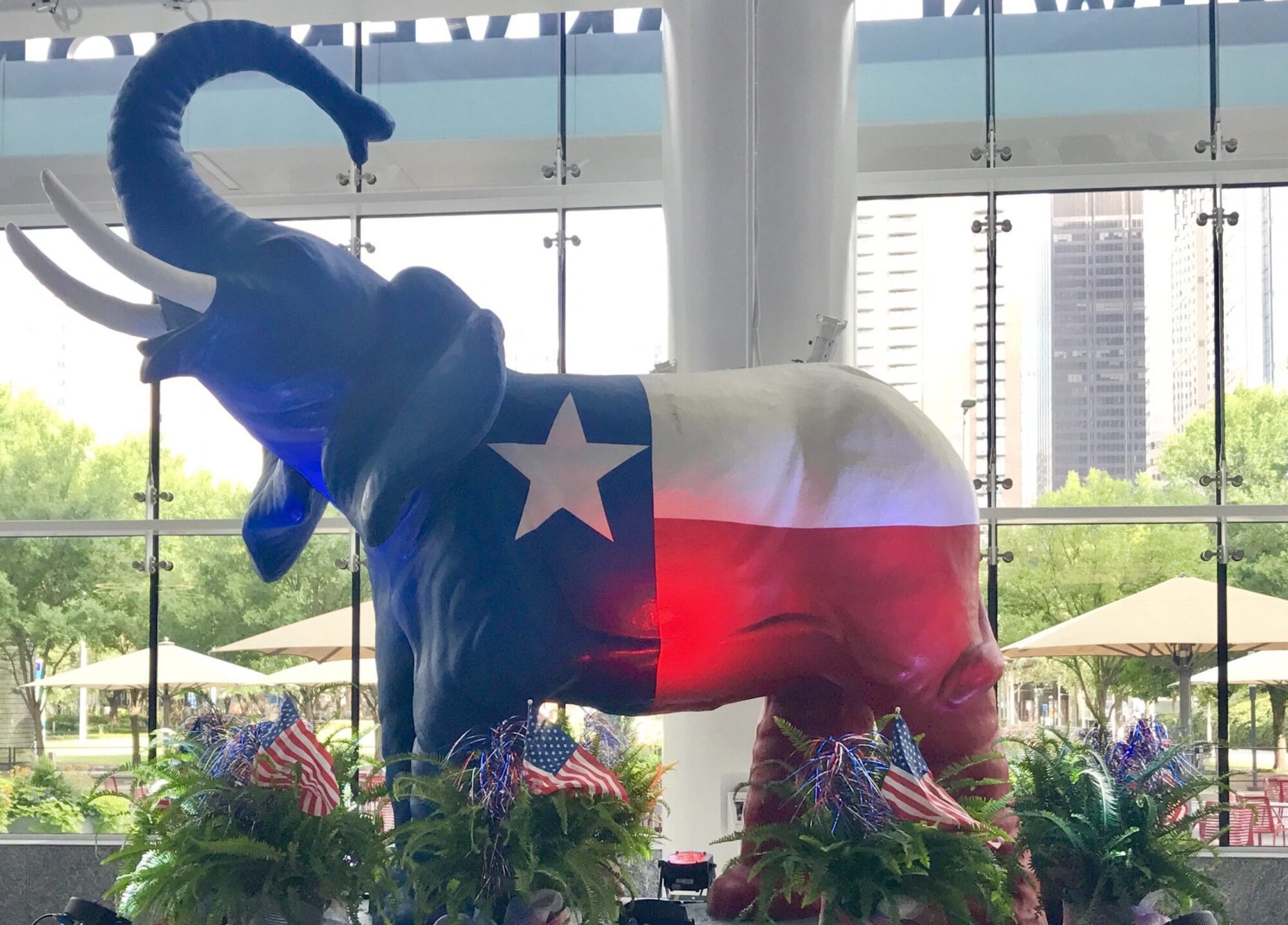For the third time this year, the Texas Senate passed Republicans’ top-priority election integrity bill over the objections of Democrats.
The bill now goes (again) to the Texas House, which has failed to pass major election reforms this year due to Republican leaders’ mismanagement and Democrats fleeing to avoid voting on the measures.
Thursday morning, state senators approved Republicans’ signature comprehensive election reform legislation Senate Bill 1 on a party-line vote, following a 15-hour filibuster by State Sen. Carol Alvarado (D–Houston), who criticized the bill as an attempt by Republicans to “suppress” Democrat voters.
“Those of us who have read the bill know what’s in it: common-sense reforms that make it easy to vote and hard to cheat,” the bill’s author, State Sen. Bryan Hughes (R–Mineola), said just before Thursday’s final Senate approval, adding the bill has gotten better during deliberations.
Republicans Revise, Democrats Demonize
Senate Bill 1 is the third version of Hughes’ major election reform bill the Senate has passed this year, following Senate Bill 7 in the regular session and a similar Senate Bill 1 in the first special session.
“No one can deny we can and should always work toward a better election process, one that’s safer and more accessible,” Hughes said, noting a number of similar bills he filed over the past several years. “That’s what Senate Bill 1 does.”
Some provisions in SB 7 were removed from SB 1 because they passed as standalone bills during the regular session. Hughes said he made other changes based on suggestions offered during public hearings and floor debates, along with input from diverse sources including Democrats, Republicans, and disability rights advocates.
“Walkouts don’t work. Debates work,” said State Sen. Paul Bettencourt (R–Houston) during the Senate’s final consideration of SB 1—a jab at House Democrats who have been no-shows in both special sessions while publicly bashing Hughes’ bills and Texans who support them.
For months, Democrats in Texas and nationwide have unleashed a continuous stream of coordinated attacks on all election integrity reforms, demonizing them as “voter suppression.”
Senators Work, House Democrats Walk
Senate Democrats have vocally opposed every version of Hughes’ bill and joined in national attacks on their proponents, but they haven’t attempted to shut down debate or prevent votes on the measures, other than Alvarado’s temporary delay overnight Wednesday.
House Democrats are a different story.
Even though election integrity is a top legislative priority of the Texas GOP and Gov. Greg Abbott, the Republican-run House failed to pass a comprehensive election reform bill during the 140-day regular session.
On the next-to-last day of the regular session, House Speaker Dade Phelan allowed Democrats to walk out and break the two-thirds quorum required for the 150-member House to hold a final vote on SB 7.
House Democrats broke quorum again at the start of the first regular session in July, and most have remained absent without leave (either in D.C. or on vacation) throughout the second special session that started on August 7.
The Democrat lawmakers fled to D.C. not only to stall another vote on Texas’ voting security bills, but also to attack election integrity reforms in the press and lobby for congressional Democrats’ bills to give the federal government control over states’ voting rules.
Texas Democrats’ press tour officially failed Wednesday when U.S. Sen. Ted Cruz, a Republican from Texas, blocked a last-ditch attempt by Senate Democrats to slip through portions of their signature election-takeover legislation, H.R. 1, following an all-night debate on a massive federal spending bill.
What’s Next
With nothing left to do in D.C., House Democrats are returning to Texas.
On Tuesday, Speaker Phelan finally issued arrest warrants to bring the absent lawmakers to the Capitol.
Meanwhile, election integrity advocates wait to see if the Legislature can finally pass their priority reforms and help restore confidence in Texas elections.
Several election integrity bills have been filed in this special session, including the House version of comprehensive election reform (House Bill 3) and a proposal to conduct a forensic audit of the 2020 election (House Bill 26), but all legislation remains stalled until enough House Democrats return to their jobs.
“I have a right to equal impact of my ballot, to equal access to ballots, to vote my own ballot in private, and to be sure my ballot is counted,” said longtime Harris County election security activist Alan Vera, speaking in favor of SB 1 during a public hearing Monday.
“People want to trust this process,” Hughes said. “We all want our votes to count and be counted accurately.”
[This article has been updated; the original version incorrectly identified Sen. Bettencourt’s party affiliation.]





